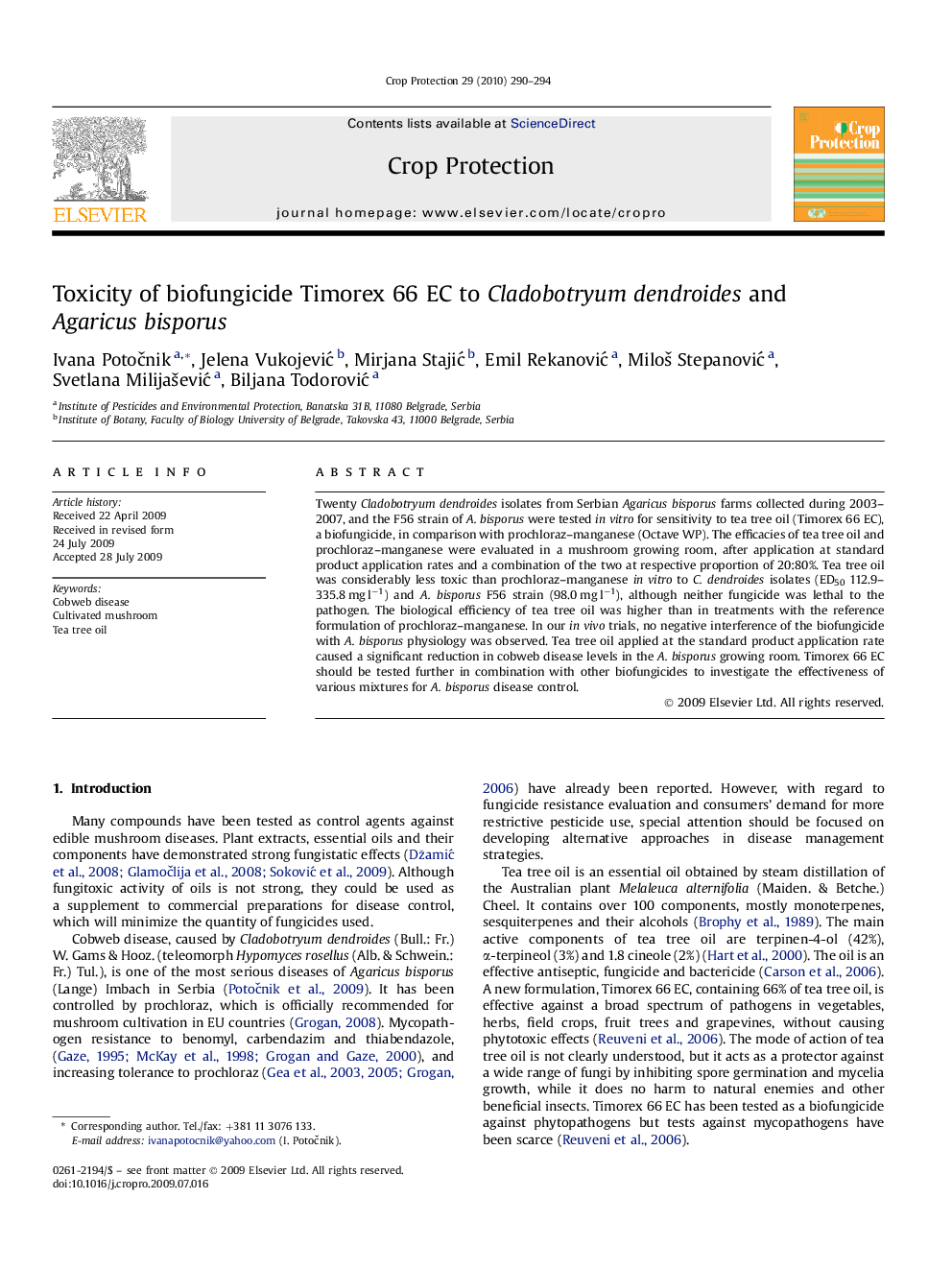| Article ID | Journal | Published Year | Pages | File Type |
|---|---|---|---|---|
| 4507110 | Crop Protection | 2010 | 5 Pages |
Twenty Cladobotryum dendroides isolates from Serbian Agaricus bisporus farms collected during 2003–2007, and the F56 strain of A. bisporus were tested in vitro for sensitivity to tea tree oil (Timorex 66 EC), a biofungicide, in comparison with prochloraz–manganese (Octave WP). The efficacies of tea tree oil and prochloraz–manganese were evaluated in a mushroom growing room, after application at standard product application rates and a combination of the two at respective proportion of 20:80%. Tea tree oil was considerably less toxic than prochloraz–manganese in vitro to C. dendroides isolates (ED50 112.9–335.8 mg l−1) and A. bisporus F56 strain (98.0 mg l−1), although neither fungicide was lethal to the pathogen. The biological efficiency of tea tree oil was higher than in treatments with the reference formulation of prochloraz–manganese. In our in vivo trials, no negative interference of the biofungicide with A. bisporus physiology was observed. Tea tree oil applied at the standard product application rate caused a significant reduction in cobweb disease levels in the A. bisporus growing room. Timorex 66 EC should be tested further in combination with other biofungicides to investigate the effectiveness of various mixtures for A. bisporus disease control.
